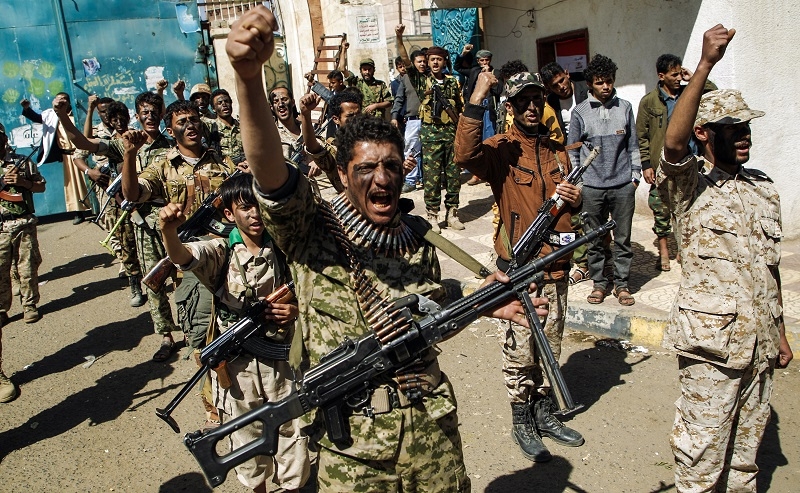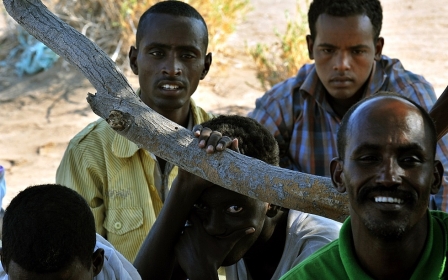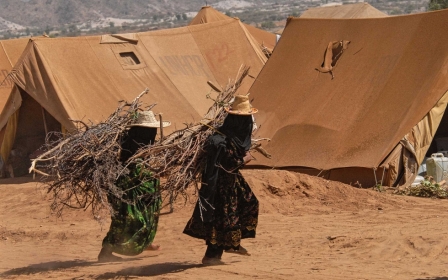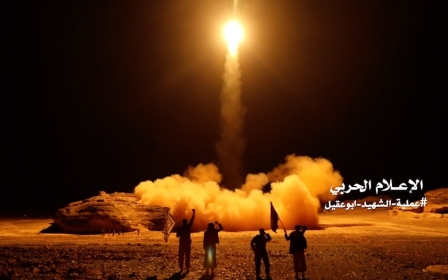Saleh loyalists turn guns on Houthis as Yemen lurches into new conflict
Supporters of Ali Abdullah Saleh fight first battle with Houthis since former president died at Houthi hands in Sanaa last year

Houthi fighters chant slogans during a gathering in the capital Sanaa (AFP)
Published date: Jeudi 19 avril 2018 - 17:12
|
Last update: 6 années 7 mois ago
Forces loyal to the late Yemeni president Ali Abdullah Saleh battled their former Houthi allies on Thursday over control of a key outpost, marking the first such battle between the two sides since the Houthis killed Saleh last year.
The fighting was concentrated east of the Red Sea port of al-Mokha, at an intersection on the main road leading east into Taiz, Yemen's third largest city, and the road north to the port of Hodeidah, where most of the country's food imports enter.
Sources said on Thursday that thousands of soldiers comprising former members of the elite Republican Guards, the paramilitary Central Security Forces and other elite troops, backed by Saudi-led coalition forces, were involved in the fighting.
Pro-Saleh forces said there were casualties on both sides in the fighting. The forces included a new unit set up by Saleh's nephew, Brigadier-General Tareq Mohammed Saleh. He had led a brigade of a Yemeni army unit before his uncle was forced to step down in 2012 following mass protests against his rule.
The fighting followed a major switch in allegiances in the war. Saleh initially sided with the Iranian-allied Houthis who swept across most of northern Yemen in a series of military offensives that began in 2014. And it betrayed the growing complexity of a conflict that has already killed more than 10,000 people forced three million people from their homes.
The switch in allegiances came when Houthis fighters killed Saleh in December after he called on the Saudi-led coalition to end the war, a move interpreted by the Houthis as betrayal.
The new force led by Saleh's nephew is now expected to bolster Hadi's supporters.
Internal clashes and a Saudi-led blockade, which has eased after international criticism, has led to a stalemate in the country and a humanitarian catastrophe.
Middle East Eye propose une couverture et une analyse indépendantes et incomparables du Moyen-Orient, de l’Afrique du Nord et d’autres régions du monde. Pour en savoir plus sur la reprise de ce contenu et les frais qui s’appliquent, veuillez remplir ce formulaire [en anglais]. Pour en savoir plus sur MEE, cliquez ici [en anglais].




